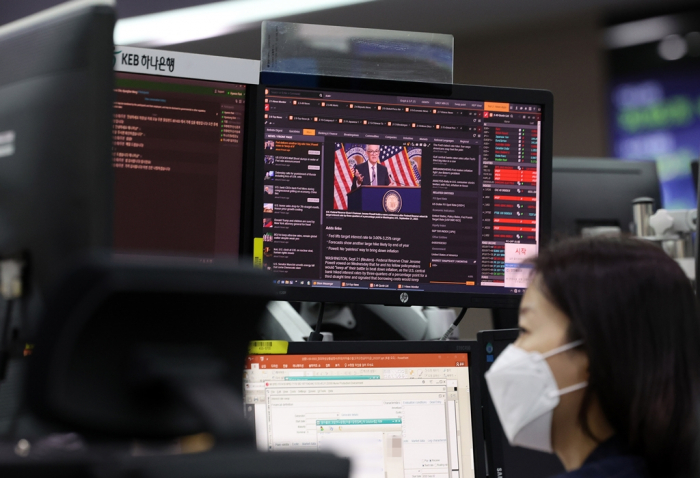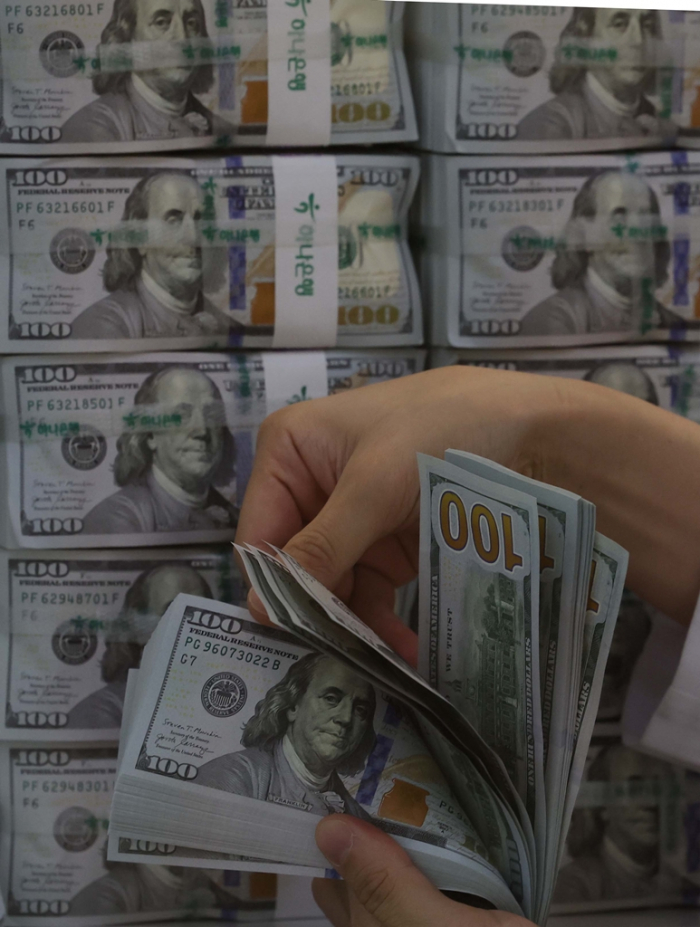Economy
Tanking won deteriorates Korea’s dollar funding conditions
The spread on CDS rises to 50 bps, the largest since July 6 when the premium hit the highest since March 2020
By Sep 26, 2022 (Gmt+09:00)
3
Min read
Most Read
LG Chem to sell water filter business to Glenwood PE for $692 million


KT&G eyes overseas M&A after rejecting activist fund's offer


Mirae Asset to be named Korea Post’s core real estate fund operator


StockX in merger talks with Naver’s online reseller Kream


Meritz backs half of ex-manager’s $210 mn hedge fund



A nosediving South Korean won deteriorated local corporate dollar funding conditions with the cost of insuring the country’s sovereign debt against default hovering around its highest in more than two years. The premiums on the country’s foreign exchange stabilization bonds also increased.
Some local banks faced difficulties in securing more dollars as their credit lines allocated by foreign banks ran out of limits due to the won’s weakness. The troubles may cause liquidity issues for exporters, asset management firms, brokerage houses, insurers and others that need currency hedging, although Asia’s fourth-largest economy is unlikely to suffer such a full-scale crisis, analysts said.
The spread on credit default swaps (CDSs) for South Korea’s five-year dollar-denominated currency stabilization bonds rose to 50 basis points (bps) on Sept. 23, the largest since 56bps hit on July 6, according to the Korea Center for International Finance on Monday. The July’s high was the highest since March 2020.
A CDS is a contract between two parties in which one party purchases protection from another party against losses from the default of a borrower for a defined period of time. A larger spread indicates more risks of a default, which usually increases funding costs.
The spreads on South Korea’s foreign exchange stabilization bonds widened with the premium on the five-year notes against the yields of the US Treasury bonds with the same maturity rose to 42 bps last Friday from 32 bps earlier this year.
HIGHER DOLLAR FUNDING COSTS
The rise in both the CDS premiums and the foreign exchange stabilization bond spreads has been accelerating since the US Federal Reserve aggressively raised interest rates to tame the rampant inflation in the world’s top economy, continuing to hurt the won, the worst performer among emerging Asian currencies with a 16.9% loss against the dollar so far this year.
As a result, dollar funding costs rose with the one-year foreign exchange swap point which indicates the short-term liquidity conditions of the dollar, widened to minus 22 won, the largest since minus 27 won in March 2020.
“The currency market players are closely watching the fall in South Korea’s foreign exchange reserves resulting from the country’s measures against the won’s weakness,” said Shin Se-don, an economics professor at Sookmyung Women’s University in Seoul.
The reserves fell by $26.7 billion to $436.4 billion as of end-August, according to central bank data.

DIFFICULTIES IN DOLLAR FUNDING
Local banks, which supply dollar liquidity to the domestic financial markets, were in trouble securing dollars.
Those banks usually raise dollars with the won as collateral through foreign exchange swap deals with foreign banks. Those domestic banks provide foreign currency loans to local companies while dealing with the sales of forwards by exporters, asset management firms, brokerage houses and others to hedge foreign exchange risks with the dollars.
But the recent weakness in the won exhausted their dollar credit lines without additional transactions.
“If the won keeps falling further, foreign banks can start collecting dollars to reduce credit risks and meet liquidity ratios,” said an official at a domestic bank.
Write to Do-Won Lim and Nan-Sae Bin at van7691@hankyung.com
Jongwoo Cheon edited this article.
More to Read
-
 Foreign exchangeKorean won at fresh low since global financial crisis as markets crash
Foreign exchangeKorean won at fresh low since global financial crisis as markets crashSep 26, 2022 (Gmt+09:00)
2 Min read -
 Central bankBOK chief signals another big step as Fed hike haunts won
Central bankBOK chief signals another big step as Fed hike haunts wonSep 22, 2022 (Gmt+09:00)
5 Min read
Comment 0
LOG IN


